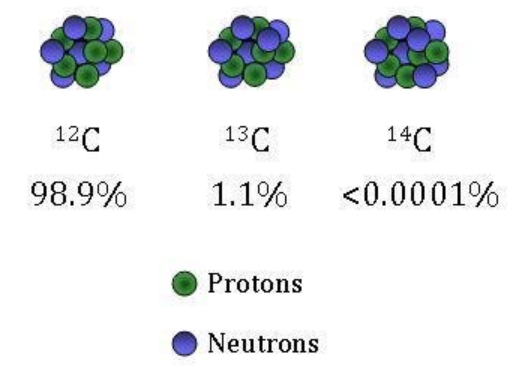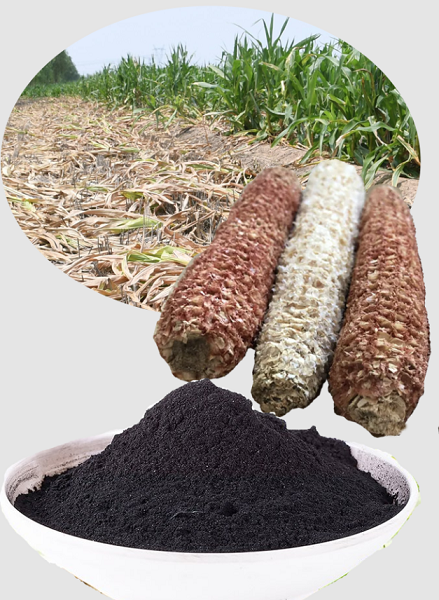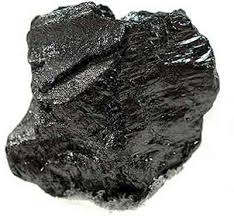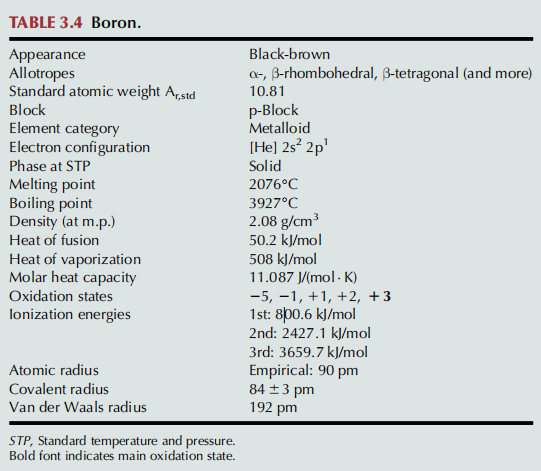The isotopes of Carbon
Carbon is a chemical element with the symbol C and atomic number 6. Classified as a nonmetal, Carbon is a solid at room temperature. Carbon isotopes are atomic nuclei with 6 protons plus several neutrons (between 2 and 16). Carbon has two stable, naturally occurring isotopes. The isotope 12C forms 98.93% of the Carbon on Earth, while 13C forms the remaining 1.07%. The 12C concentration is further selectively increased in biological materials due to biochemical reactions discriminating against 13C. In 1961, the IUPAC accepted the isotope 12C as the basis for atomic weights.

14C is a naturally formed radio-isotope, produced in the upper atmosphere (lower stratosphere and upper troposphere) by interaction of nitrogen with cosmic rays. It is observed in trace amounts on Earth of 1 part per trillion (0.0000000001%) or more, generally limited to the atmosphere and near-surface deposits, mostly of peat and other organic materials. This isotope decays by 0.158 MeV β emission. Due to its relatively short half-life of 5730 years, 14C is effectively absent in ancient rocks. The concentration of 14C in the atmosphere and living organisms is virtually constant but decreases predictably in their bodies after death. This principle is applied in radiocarbon dating, developed in 1949, and is applied extensively to determine the age of carbonaceous materials up to about 40,000 years.
There are 15 known isotopes of carbon, and the shortest-lived of these is 8 C, with a half-life of 1.98739*10-21 s. It decays through proton emission and alpha decay. The exotic 19C has a nuclear halo, meaning its radius is noticeably larger than predicted, assuming the nucleus was a sphere of constant density.
The chemistry of Carbon is dominated by three factors: (1) it forms unusually strong bonds with itself in varying bond orders—1 (single bonds), 2 (double bonds), or 3 (triple bonds); (2) it has an electronegativity (EN 5 2.55) that is too small to allow formation of C42 ions and too large to form C41 and so, carbon forms covalent bonds with many other elements; and (3) it forms strong double and triple bonds with several other nonmetals, including N, O, P, and S. The unique ability to form strong bonds with itself and with many other elements leads to a vast number of its compounds — there are probably more than one million known today.
You may like
Related articles And Qustion
Lastest Price from Carbon manufacturers

US $6.00/kg2025-04-21
- CAS:
- 7440-44-0
- Min. Order:
- 1kg
- Purity:
- 99%
- Supply Ability:
- 2000KG/Month

US $3.50/kg2025-04-18
- CAS:
- 7440-44-0
- Min. Order:
- 1kg
- Purity:
- ≥99%
- Supply Ability:
- 300tons/month





